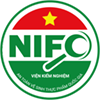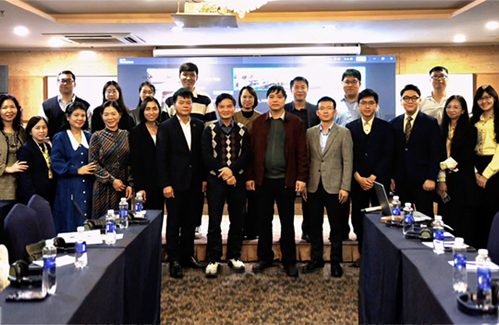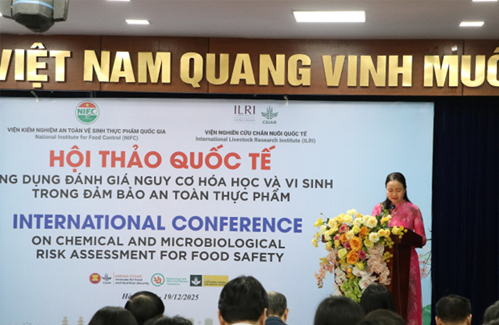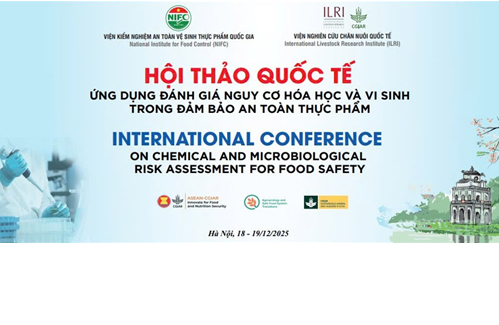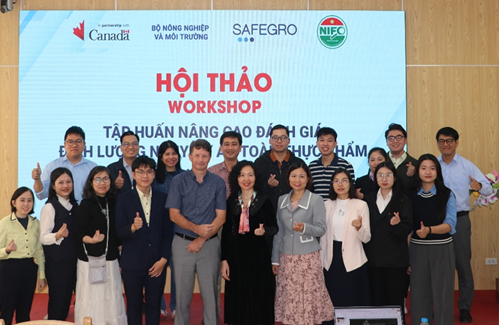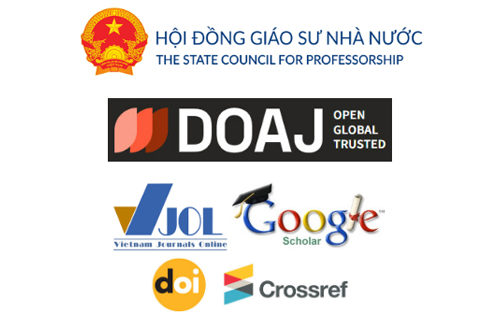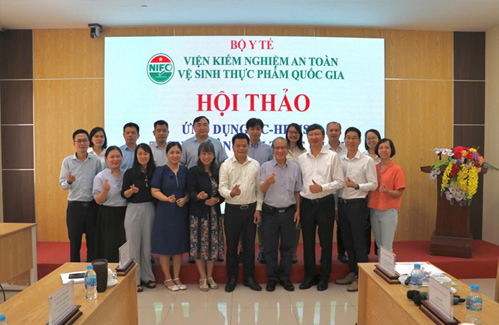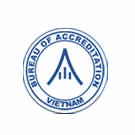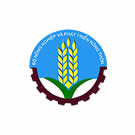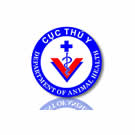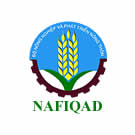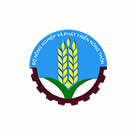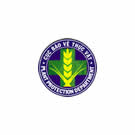- Folder Internal News
- Views 2234
- Last Updated 03/11/2024
On the morning of November 2, 2024, the Ministry of Health held a ceremony to announce the establishment of the Vietnam Center for Food Safety Risk Assessment (VFSA) under the National Institute for Food Control. This is the Vietnam's first center dedicated to food safety risk assessment, supporting food safety management, and proposing effective solutions to ensure food safety.
The ceremony was honored to welcome the Deputy Minister of the Ministry of Health, Mr. Do Xuan Tuyen; the Director of Vietnam Food Administration - Mr. Tran Viet Nga; the Deputy Director of the Department of Personnel and Organization - Ms. Le Lan Huong; and other partitipants from the Ministry of Health; Ministry of Agriculture and Rural Development, Ministry of Industry and Trade, Ministry of Science and Technology; and representatives from universities, local food safety agencies. In particular, this ceremony brought the participation of international organizations in Vietnam, such as the Safe Food for Growth Project (SAFEGRO), the International Livestock Research Institute (ILRI), and the JICA-ERASD project.
Delivering the ceremony's opening, Ms. Le Lan Huong, on behalf of the Ministry of Health, officially announced Decision No. 1936/QD-BYT establishing the Vietnam Center for Food Safety Risk Assessment. This decision is a significant step forward in food safety and reflects the Ministry’s strong commitment to public health.
After the announcement, Deputy Minister Do Xuan Tuyen awarded the official decision to the National Institute for Food Control, marking the establishment of the Vietnam Center for Food Safety Risk Assessment.
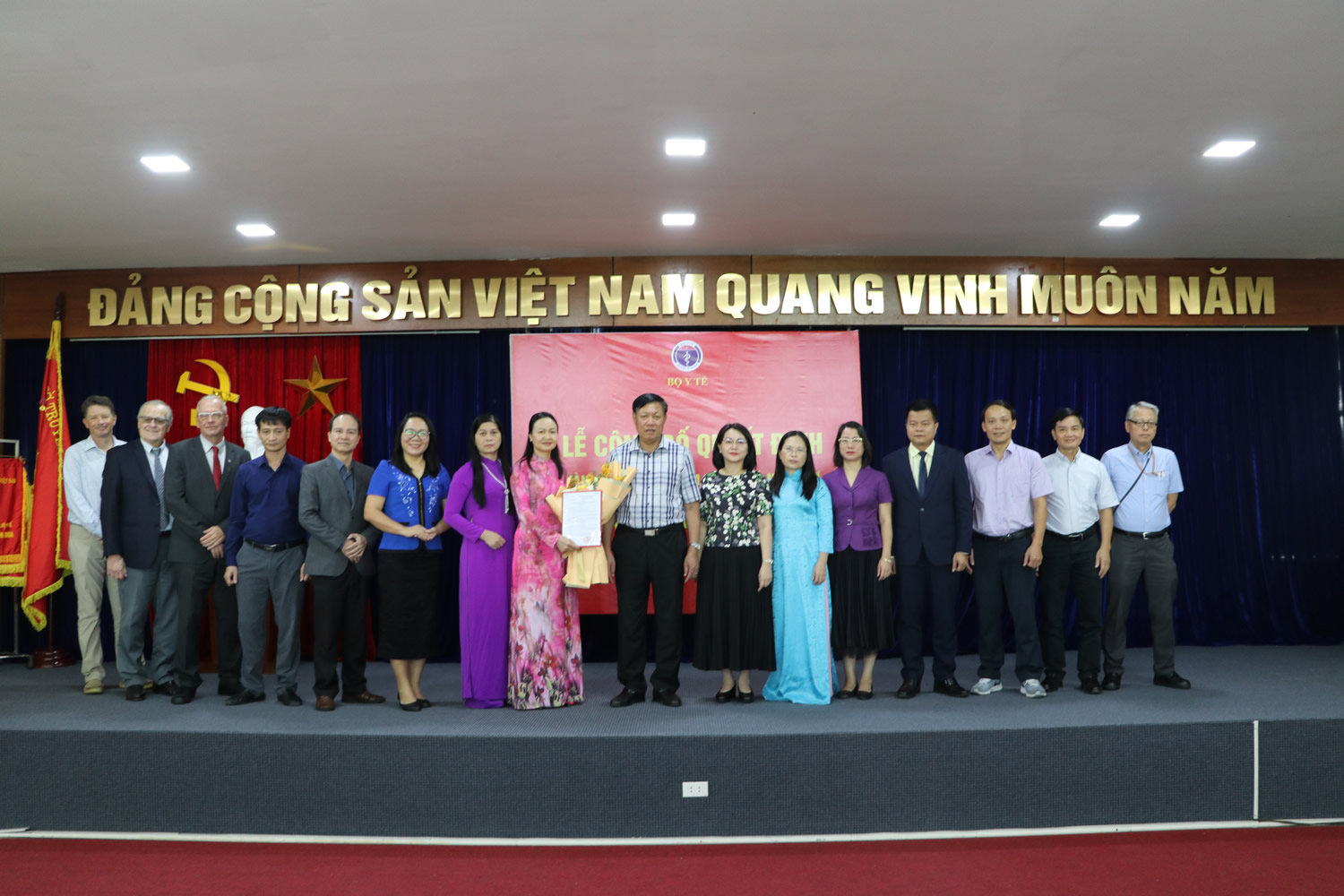
Deputy Minister Do Xuan Tuyen awarded the decision to establish the center to the National Institute for Food Control
In his speech, the Deputy Minister emphasized the importance of food safety to public health and sustainable development. He noted that the diverse food supply poses safety risks, making it necessary to establish a specialized center for risk assessment. This center will provide scientific evidence to support legal actions against food safety violations and enhance public awareness of food risks. Deputy Minister Do Xuan Tuyen emphasized 5 groups of tasks that the VFSA under the NIFC needs to carry out in the coming time.
Firstly, the NIFC needs to prioritize the development of resources, especially high-quality human resources for the VFSA. In particular, strengthening exchanges and cooperation with international organizations is important to develop human resources for risk assessment according to WHO/FAO guidelines. These cooperation will help the VFSA access international technological advances and knowledge, thereby applying the most advanced assessment methods in the field of food safety;
Secondly, the NIFC needs to proactively propose and conduct risk assessment studies for potential hazards in the food supply chain, from production to distribution and consumption, to provide early warnings and timely prevention of risks that are harmful to public health;
Thirdly, the NIFC needs to create conditions for the VFSA to actively participate in the development and completion of food safety standards and regulations. This is very important in establishing regulations that are suitable for Vietnamese, as well as in harmony with international standards. This will be the basis for better control of food quality and safety, while increasing people's confidence in domestically consumed products;
Fourthly, the NIFC needs to build a nationwide network to collect data and information on food safety, in order to ficilitate the food safety risk assessment. This network not only plays an important role in detecting and analyzing risks but also provides necessary information to management agencies, helping to improve the effectiveness of monitoring work;
Finally, the VFSA must always be source of advice on state management of food safety in term of food safety risk. Providing scientific reports, practical assessments and strategic proposals will help authorities have a scientific basis for issuing appropriate policies and management plans, promptly responding to emerging food safety issues. The Vietnam Food Administration has guidelines to promote the role of the VFSA in risk-based food safety management.
Although there are many difficulties and challenges, the Ministry of Health believes that with the determination and efforts of all staff, and the support from the Ministry of Health and other agencies, the VFSA will achieve the set goals, bringing practical benefits to public health and the sustainable development of the country.
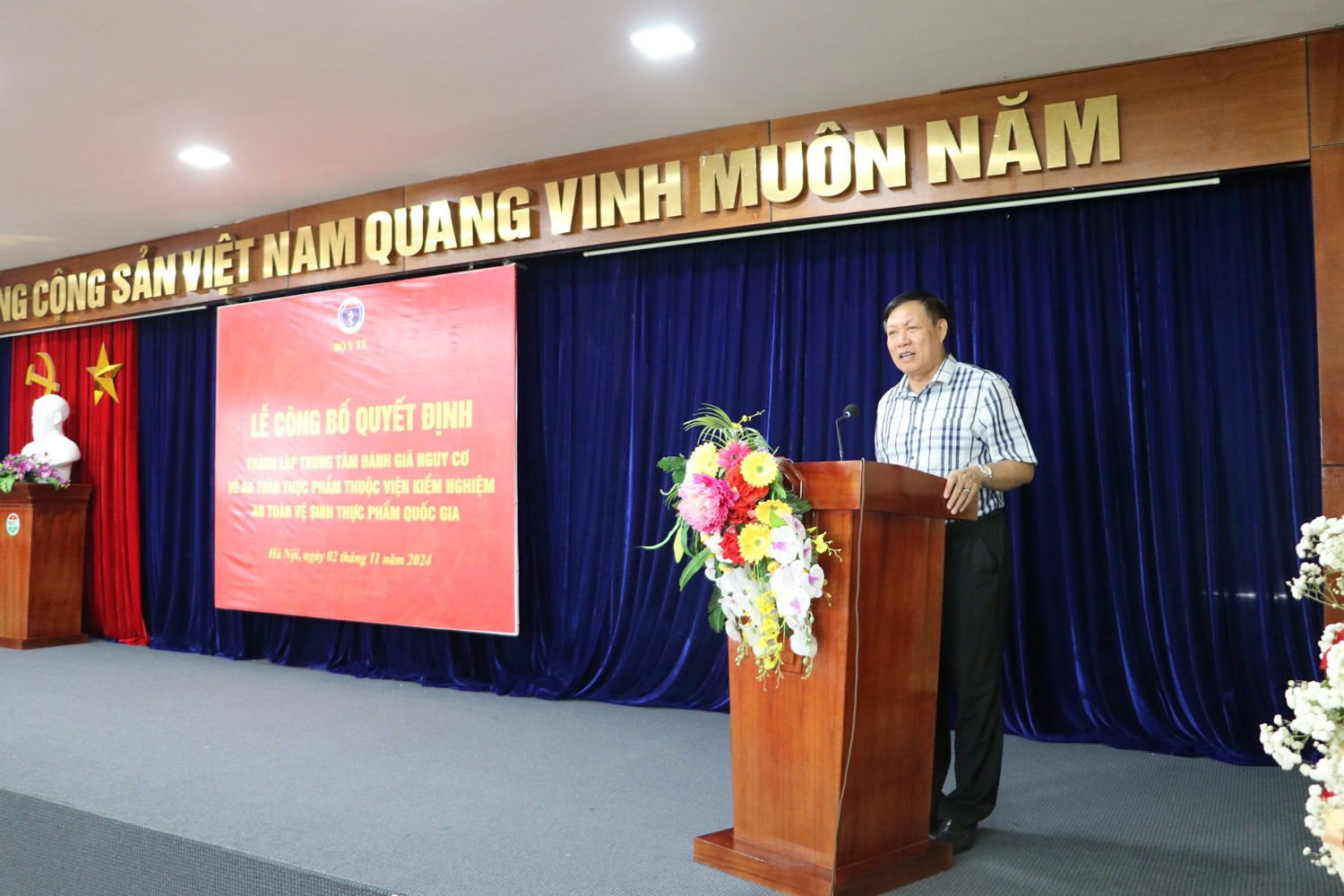
Deputy Minister Do Xuan Tuyen gave a speech on the direction
Subsequently, Assoc. Prof. Le Thi Hong Hao, General Director of the National Institute for Food Control, expressed gratitude to the Deputy Minister, leaders, and distinguished guests. She affirmed the Institute's commitment to making the Center a trusted resource for food safety management within and beyond the health sector.
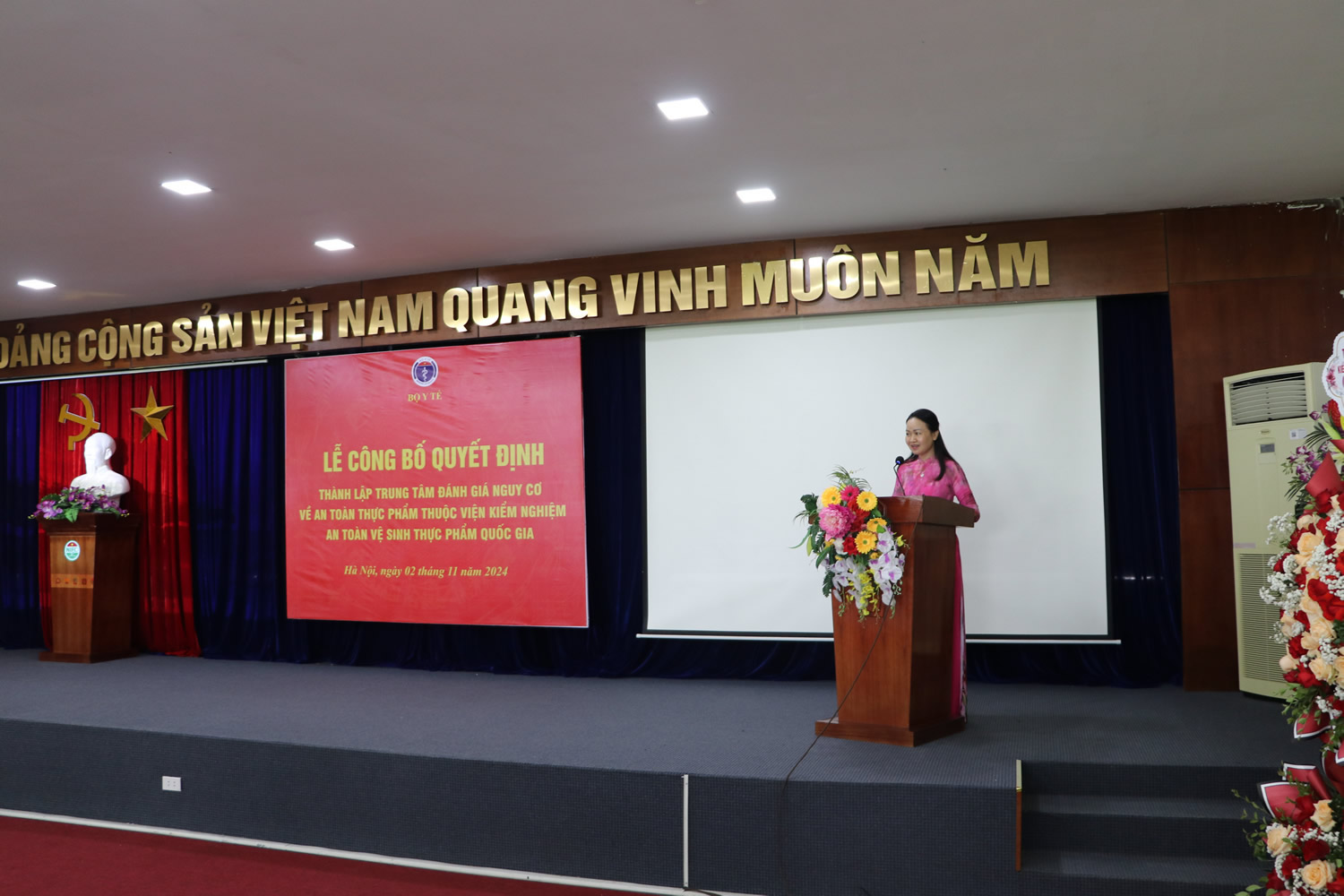
Asoc.Prof. Le Thi Hong Hao delivered a speech to absorb the opinions of the Deputy Minister
In the ceremony, Dr. Tran Cao Son, Deputy Director of the National Institute for Food Control and Head of the new Center, presented the organizational regulations and operation plans. He recommended developing the Center as a focal point for food safety risk assessment and establishing a data management and sharing system among relevant agencies. To realize this recommendation, Dr. Tran Cao Son outlined clear plans for each phase of the Center's development. In the initial years, the Center will focus on consolidating its organizational structure and standardizing processes. During this phase, proposals for implementing risk assessments will be executed as a first step toward operationalizing the Center. Simultaneously, efforts will be made to develop both domestic and international collaborations and to enhance communication on the benefits that risk assessment and the Center bring. Furthermore, Dr. Tran Cao Son defined a vision for 2030, which includes focusing on resource development, investing in the Center’s infrastructure, building a comprehensive database, and conducting risk assessments. These efforts aim to contribute to the formulation of standards and regulations.
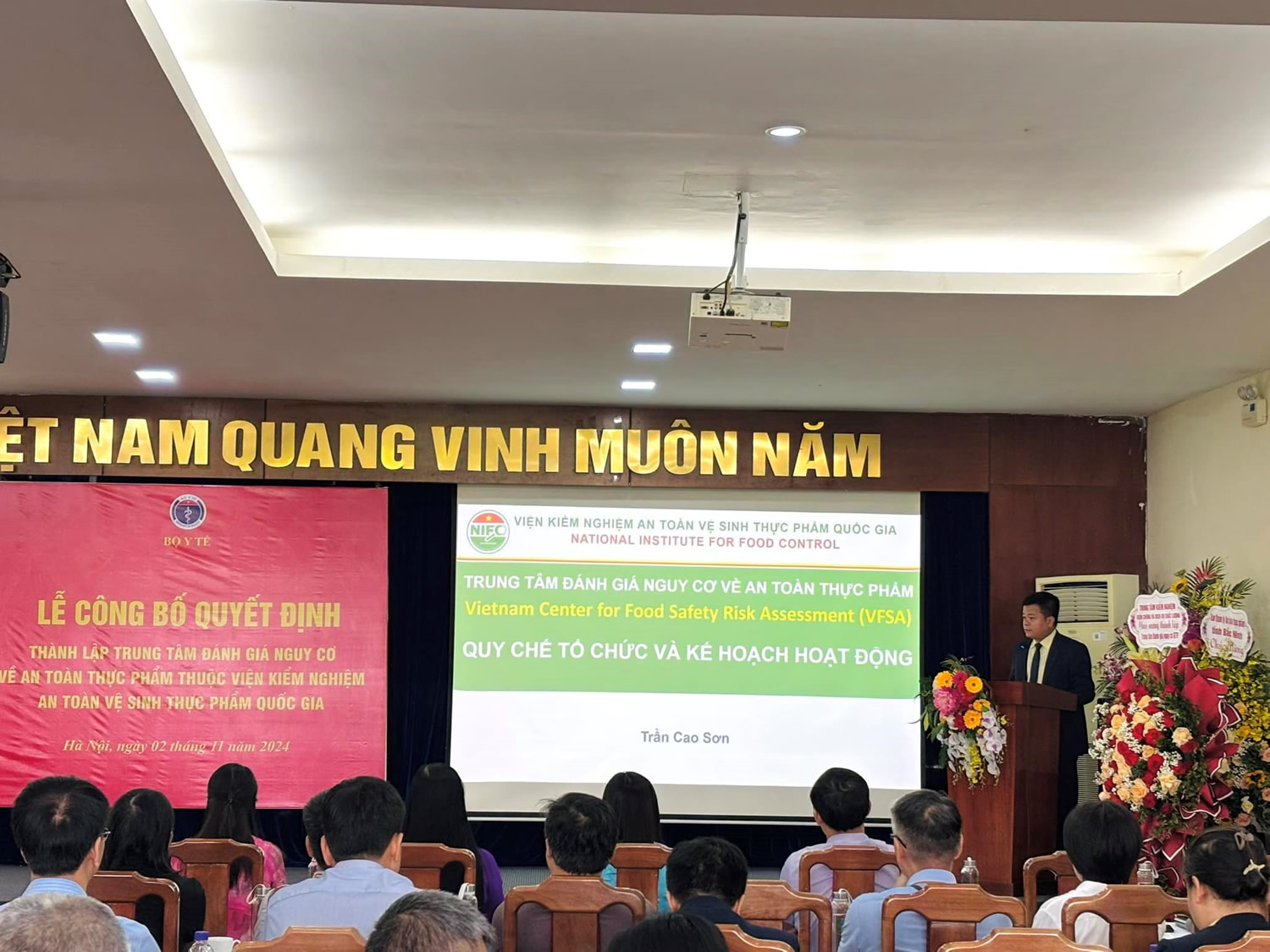
Dr. Tran Cao Son presented the Center's Organization and Operation Plans
The ceremony also welcomed valuable contributions from representatives of the Vietnam Food Administration, the Ministry of Agriculture and Rural Development, the Ministry of Industry and Trade, local agencies, and international organizations. These insights will guide the Center’s strategic direction, improving its capacity to meet the community’s needs for food safety risk assessment.
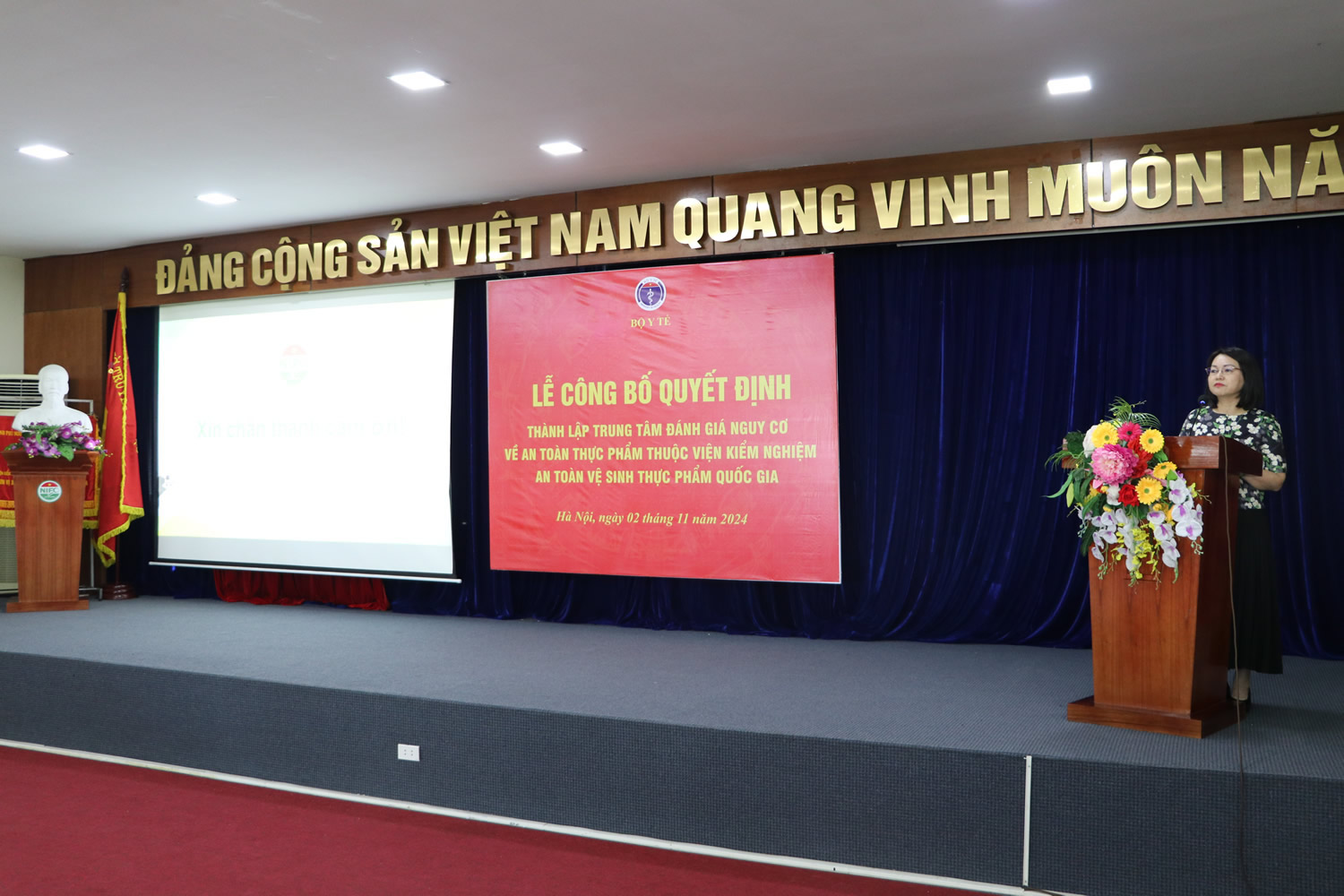
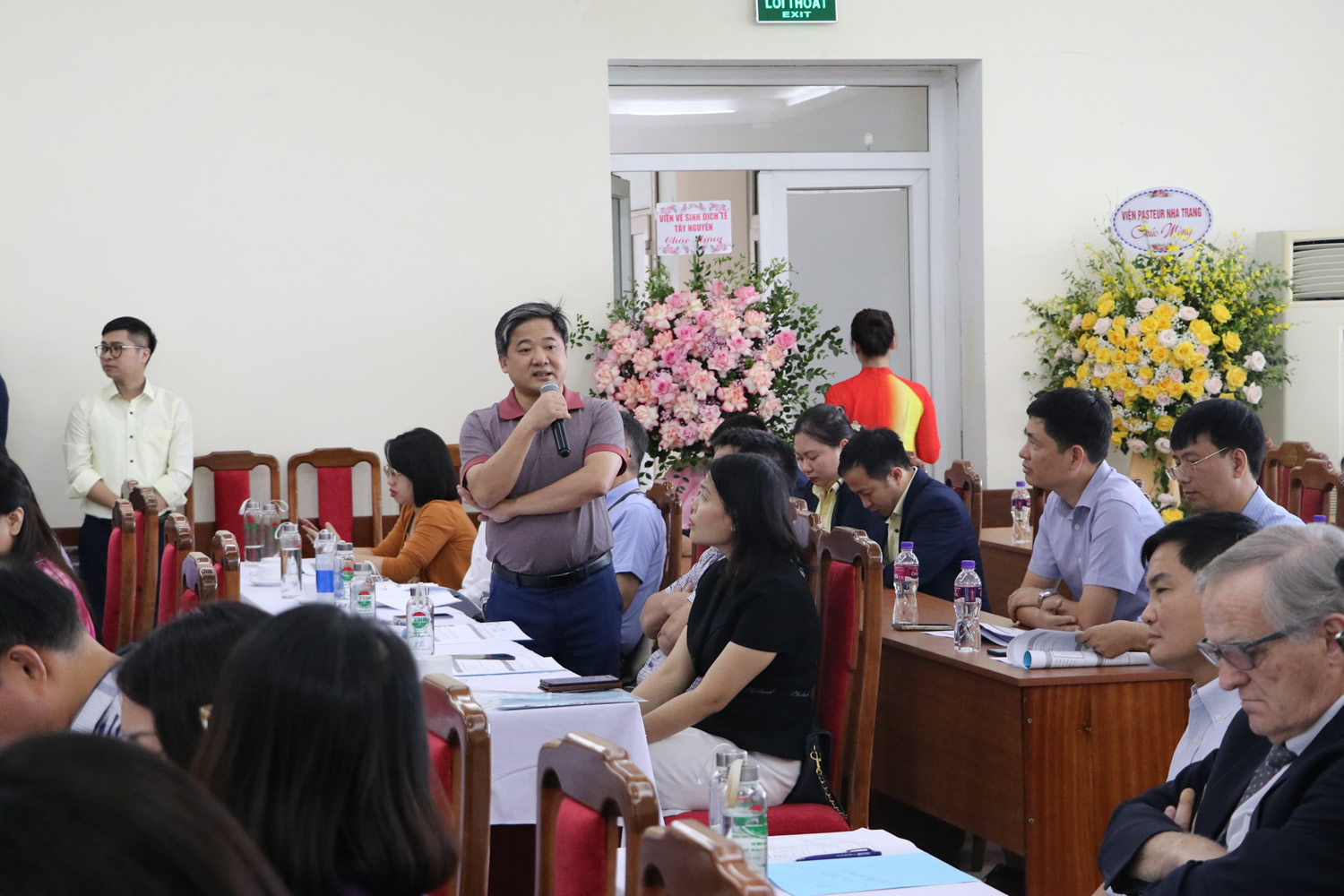
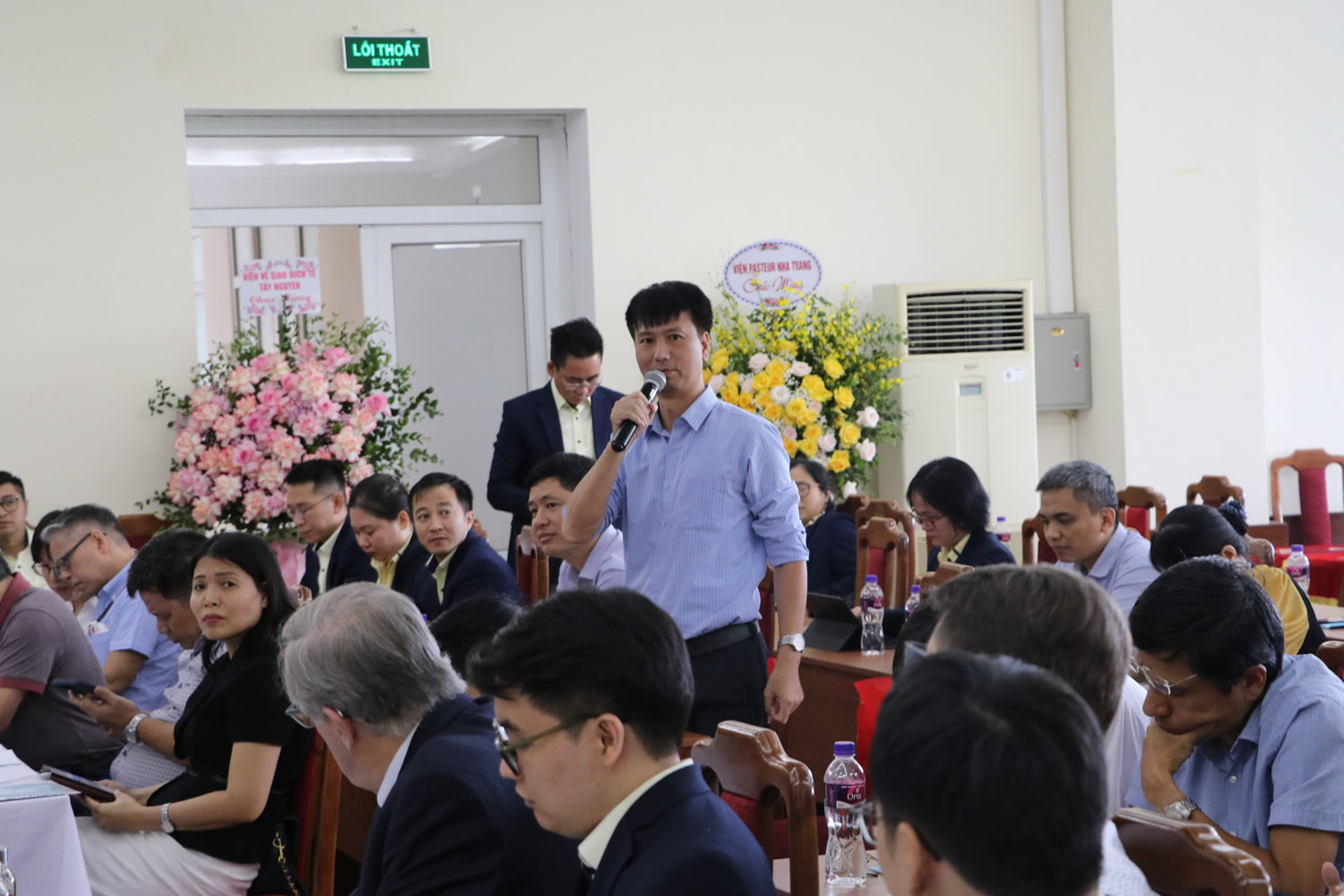
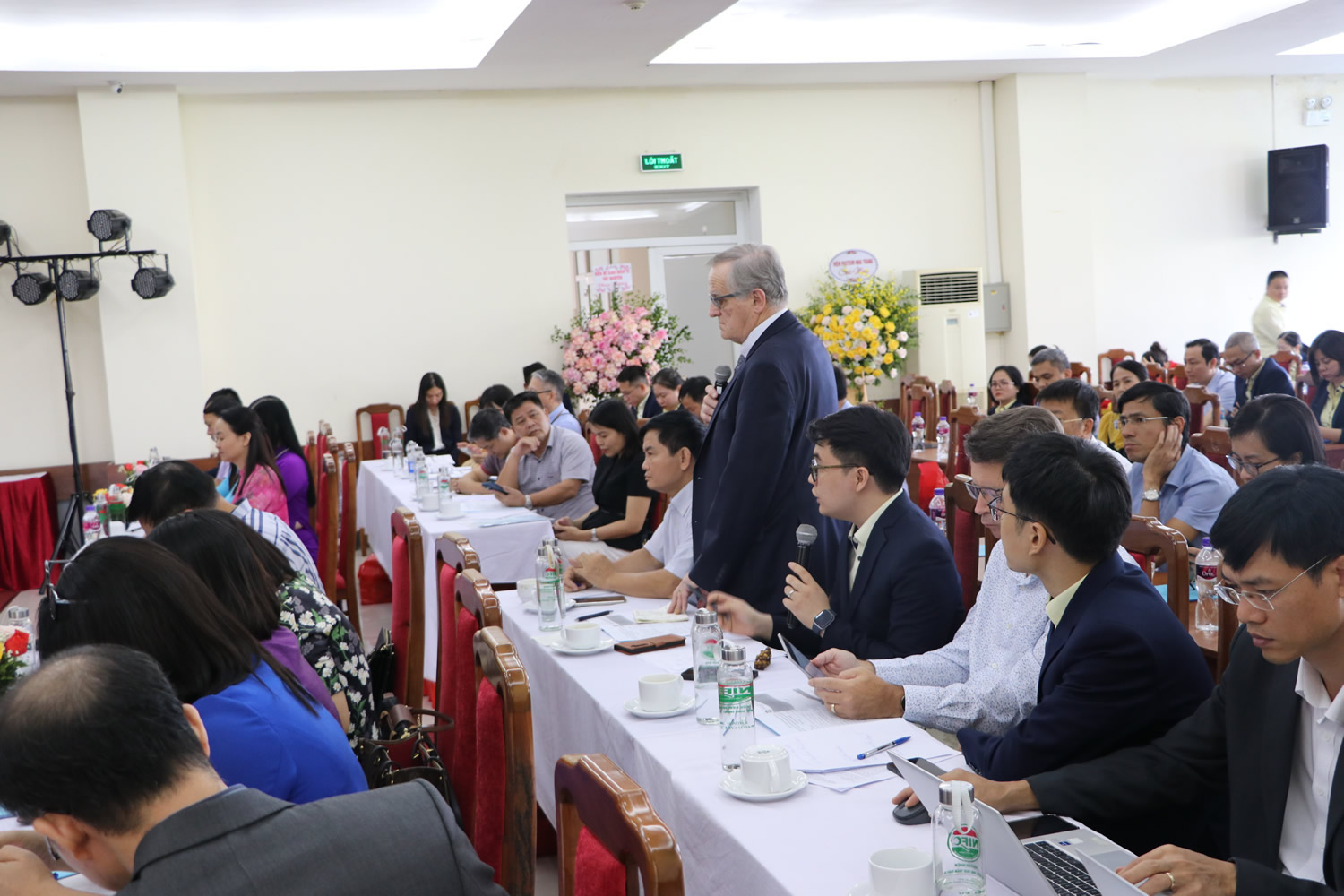
Delegates contributed opinions on the development orientation of the Center
A highlight of the ceremony was the signing of a Implementation Plan between the National Institute for Food Control and international partners, marking collaborative efforts to develop the Vietnam Center for Food Safety Risk Assessment. The NIFC will collaborate with two key partners, SAFEGRO and ILRI’s Hanoi Office to help develop the food safety risk assessment in Vietnam. This partnership establishes a foundation for risk-based food safety management, contributing to public health and consumer protection.
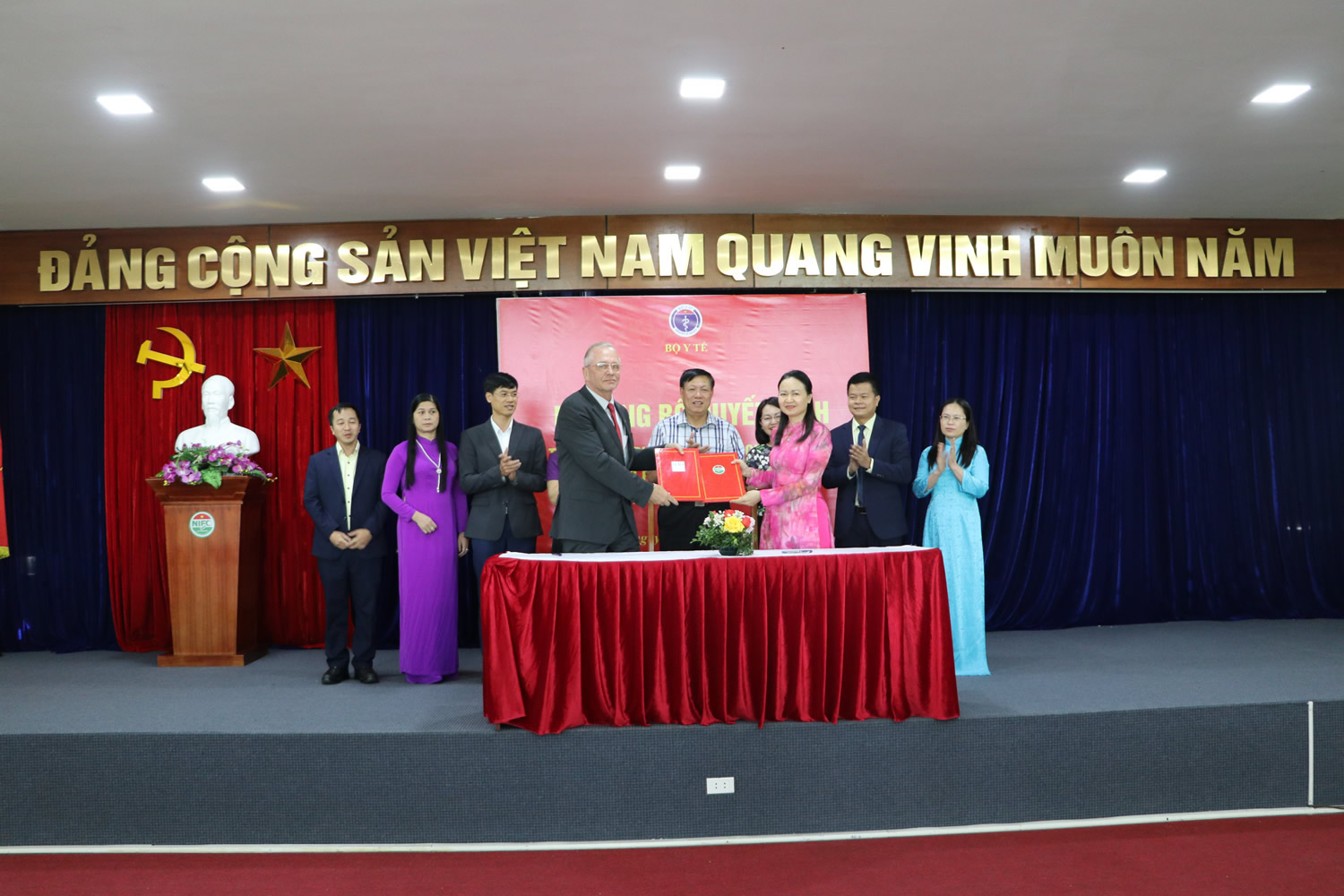
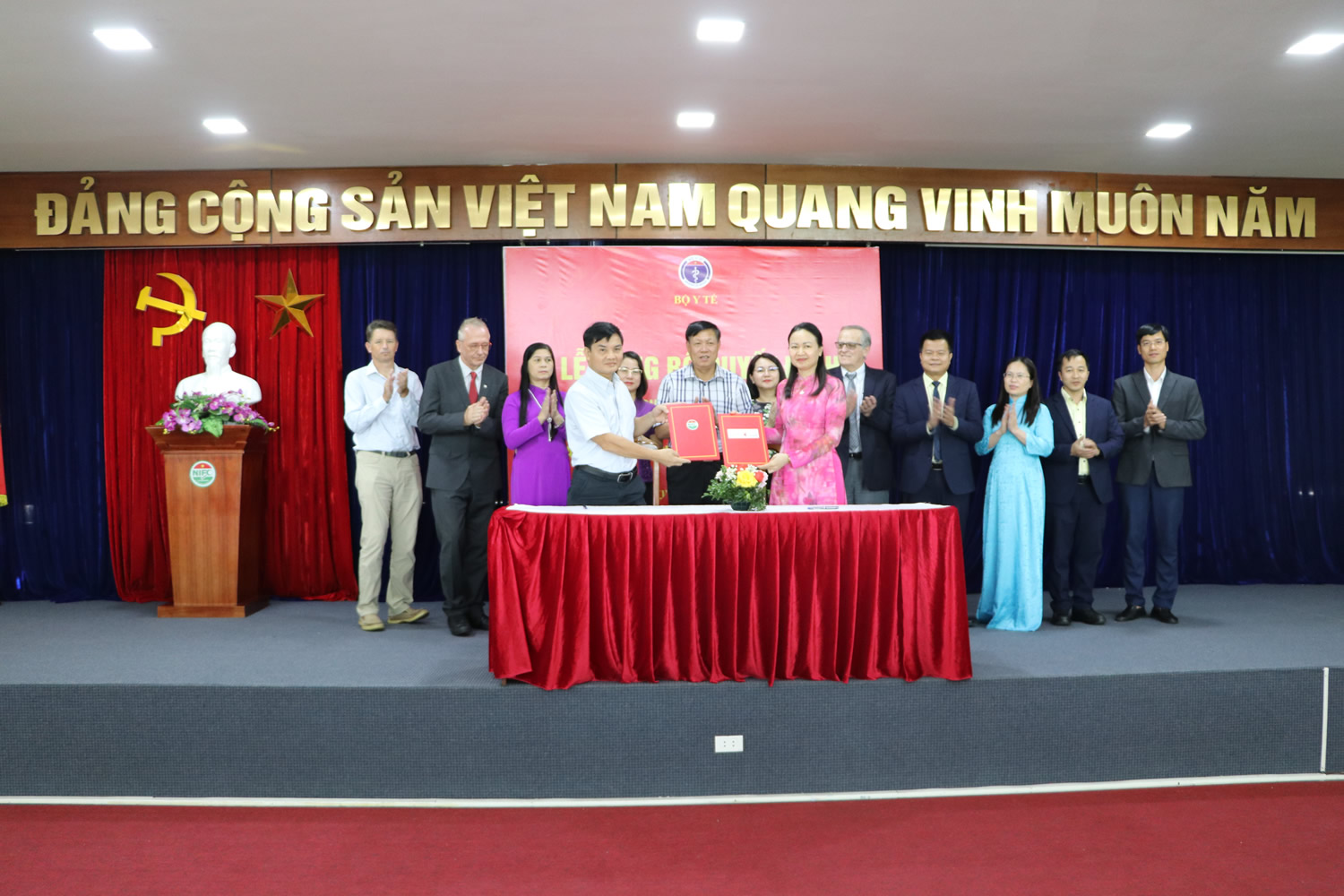
Signing of Implementation Plan between the NIFC and the some international partners in Vietnam
The Ceremony ends with visit to the VFSA, marking a meaningful and solemn event, opening a new promising path for the Center. The event ended on an uplifting note, filled with high expectations for the Center’s future contributions to public health and food safety.
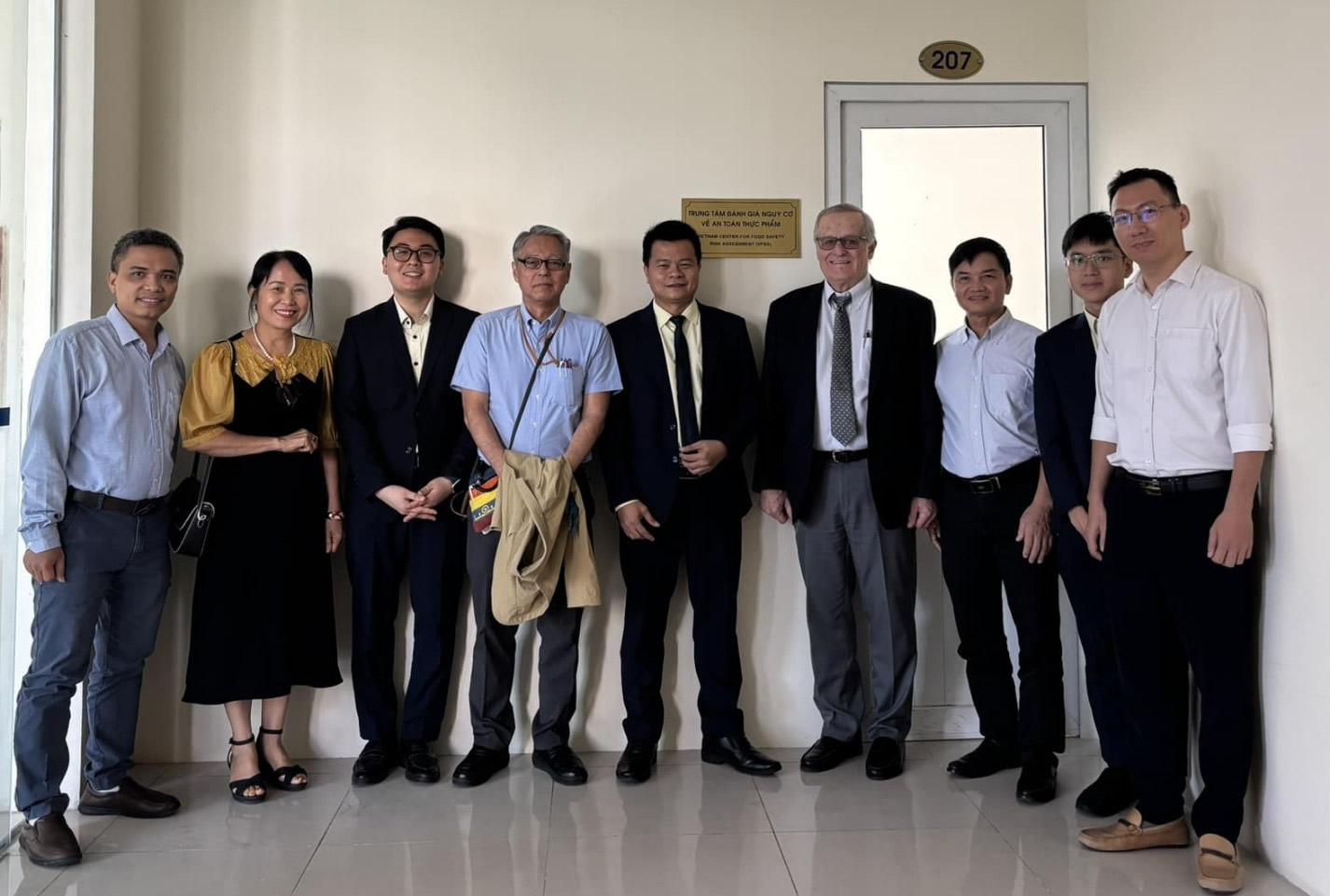
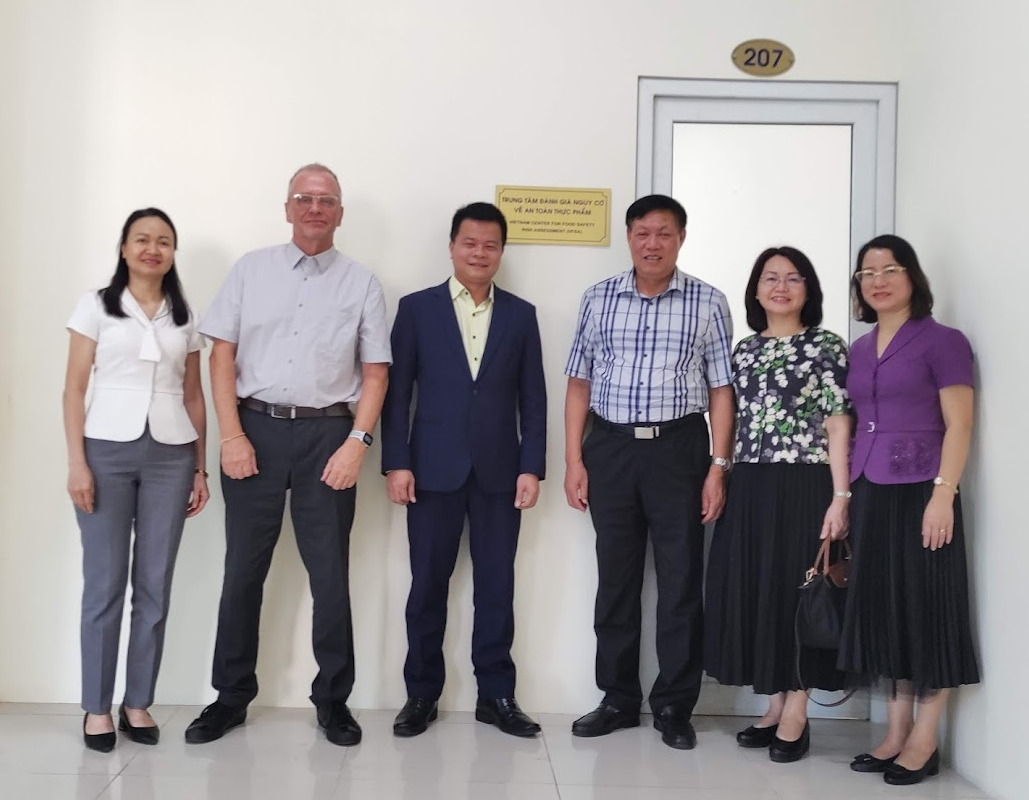
The delegates taking photos at the Vietnam Center for Food Safety Risk Assessment
